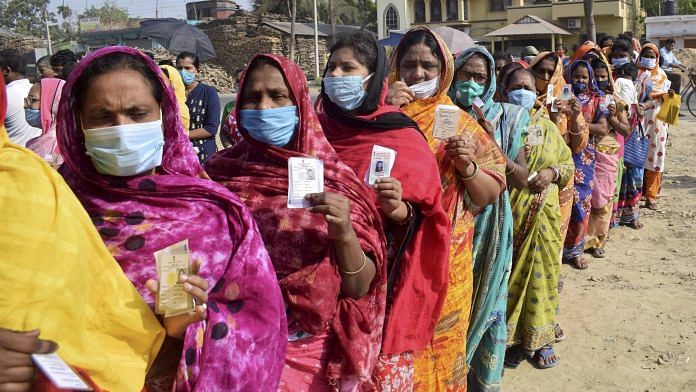
Thank you dear subscribers, we are overwhelmed with your response.
Your Turn is a unique section from ThePrint featuring points of view from its subscribers. If you are a subscriber, have a point of view, please send it to us. If not, do subscribe here: https://theprint.in/
“…We must abandon the method of civil disobedience, non-cooperation and satyagraha. When there was no way left for constitutional methods for achieving economic and social objectives, there was a great deal of justification for unconstitutional methods. But where constitutional methods are open, there can be no justification for these unconstitutional methods. These methods are nothing but the Grammar of Anarchy and the sooner they are abandoned, the better for us…”
Dr. B R Ambedkar in the Constituent Assembly
Freedom to express opposing views/dissent in policy-making is essential for any society to grow. Democratic societies enable this by the means of a vote – directly such as in Switzerland or indirectly through representatives in most countries including India. However, hosting protests to cause civil inconvenience is a uniquely Indian concept of expressing dissent. If you think of any other functioning democracy, you do not think of movements such as “Rail Roko”, “Bharat Bandh” or “Union Strike”. A lot of these means have been accepted as “peaceful” by our society which encourages mass movements, a spirit captured by the popular slogan of “Inquilab Zindabad”. This stems from the intense left-leaning ideology that flared during the freedom struggle as well as the formative years of the country. Even in our parliament, we see our esteemed elected representatives trying to hinder the functioning of the house by storming the well to express dissent. Thus, over the years, we have accepted a causal relationship between personal inconvenience and civil inconvenience. The rationale that lies behind this ideology is if someone (or a section of society) is being inconvenienced, they have the right to inconvenience others and seek remedy.
In this article, I look at only mass movements that aim to create a public nuisance as a show of depth of dissent. To be fair, there have been multiple civilian movements in independent India’s history such as the “Chipko movement”, “Irom Sharmila’s Fast” or “Anna Hazare’s Jan Lok pal Movement” which have not primarily relied on civil inconvenience to register dissent, although far less numerous.
Protests by means of civil inconvenience incentivises the use of ‘muscle power’ and legitimises such a way of public furor to celebrate the failure of constitutional machinery. Any posturing by the government would be met by intensifying protests. What do the leaders of the movement resort to when all “peaceful” options have been exhausted? Either they can call off the protests and explain to the masses on the ground why they failed and lose any authority or escalate – most of the time violently. Whether you look at Linguistic state protests in 50s, or in recent times Telangana protests, Gujjar agitation, and now the farmers protest, all have escalated into violence leading to the destruction of public property and in worse cases – loss of life. The sense of anarchy created by enhanced media scrutiny over such violence softens the government’s stand and brings a more congenial party onto the table not wanting to lose their larger voter base. Thus, a feedback cycle is created between violence and fulfillment of the ‘mission’.
If the movement derives its power to negotiate with the government from the ability to cause public nuisance and in worse cases, incite violence, an opportunistic leader is incentivized to hone that. Due to the lack of formal structure of representation in these mass movements, leaders also resort to force to keep their power intact and suppress dissent. How many times have we witnessed shops being forcefully shut during a bandh or autorickshaw drivers being harassed if they decide to earn a living on the day of a union strike? This naturally attracts leaders with a forgiving attitude towards violence. Over time, society starts associating the ability of a leader to influence government policy by his ability to engage crowds and create mass disruptions rather than create intelligent policy compromise. An effective leader in such a society thus is someone who can rally masses for his cause and is heralded as a hero of democracy.
Protests are a medieval form of policy-making by siege and capture against autocratic government structures. A large section of society remains unrepresented in such movements, drowned by jingoism. They also weaken our democracy by introducing nefarious power-hungry elements who mobilize crowds for economically sound farm laws, to preserve self-interest, rather than democracy weakening UAPA and the amendment to RTI, which have been pending in Supreme Court without much fanfare. Illustratively, the doctrine of inconvenience also causes frequent adjournments in the parliament which has eroded the quality of parliamentary debate leading to the governments finding it more expedient to pass laws via ordinances. The expression of dissent or policymaking in a democratic society cannot occur on the streets of Delhi, but rather must happen in the voting booth.
These pieces are being published as they have been received – they have not been edited/fact-checked by ThePrint.

COMMENTS